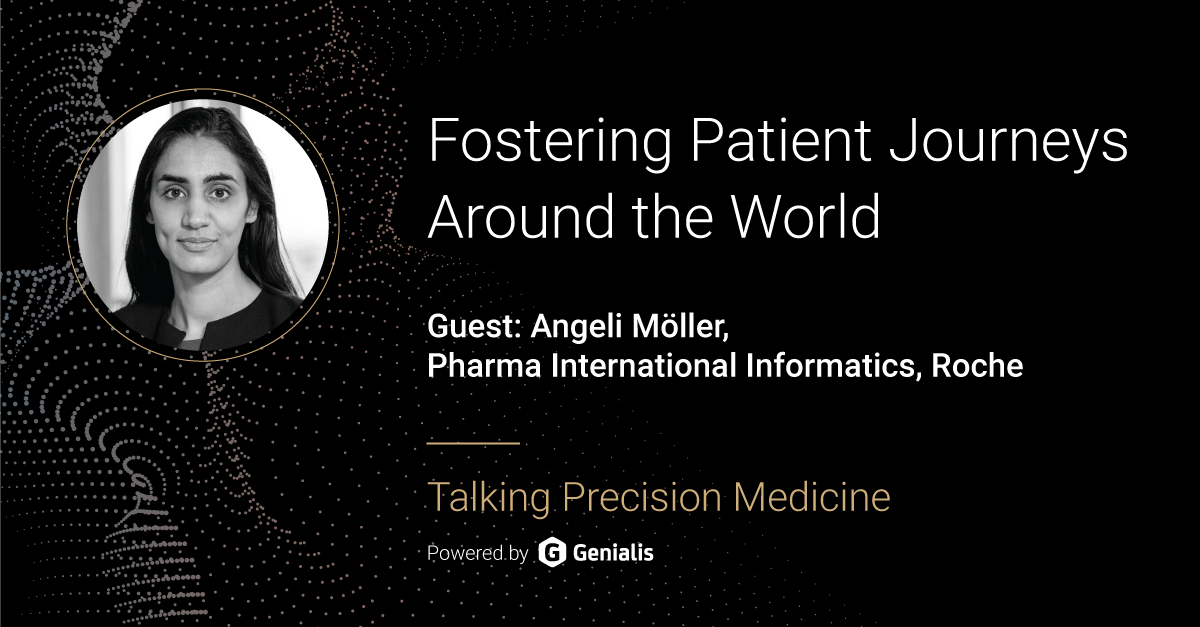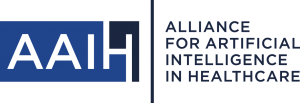Welcome to the Talking Precision Medicine podcast. In this series, we sit down with experts on the application of AI and big data analytics in the drug discovery space. Our guests are innovators, business decision makers and thought leaders at the intersection of data and therapeutics. We discuss the promise, practice, challenges, and myths of AI in precision medicine. This show is brought to you by Genialis, and Rafael, our CEO, is your host.
Genialis is focused on data integration and predictive modeling of disease biology to help accelerate the discovery and de-risk the development of novel therapeutics.
Our guest is Dr. Angeli Moeller, Head of Pharma International Informatics at Roche. Angeli and our host, Rafael, discuss data science in the big pharma leagues; geek out on data standards; and dive deep on patient data rights and barriers to care.
Let’s get right to it.
Links:
- Roche Pharma
- RARE-X
- The Alliance for Artificial Intelligence in Healthcare
- TPM episode #8: Standing up the Alliance for AI in Healthcare with Annastasiah Mhaka
Episode highlights:
Pharma International Informatics at Roche
Our mandate is to work with the customer facing organisation. We are really at the end of the pharma value chain. For example we have a role called a patient journey partner and their mission is to partner and solve issues that are getting in the way of patients being treated. But the work is still very diverse, covering everything from how Roche Pharma engages with their customers to how they collect patient data or ensure the proper infrastructure and equipment for their affiliates across the globe.
Patient recorded data in the rare disease field
With patient recorded outcomes we have to pay attention to the way we ask a question and how that affects the data you collect. For example there are certain communities where a particular diagnosis is a taboo and nobody will want to admit to having a particular symptom or diagnosis and that can affect the data that we’re able to collect. In RARE-X, patient recorded outcomes are combined with whole genome sequencing data, electronic medical records or wearable data gathering devices.
Data standards
Even though we’re probably not going to have an international electronic medical record in every single one of the countries in which Roche operates, we certainly shouldn’t invent our own and we should rather look at how we can expand and build upon and contribute to existing publicly available standards.
Data rights
The way that somebody might feel about how willing they are to share the data might change depending on how acute their symptoms are and what their life expectancy is but we shouldn’t treat people’s data privacy differently depending on what indication they have. We have an obligation to make sure that the patients can understand the consequences of how their data may be used either to improve healthcare or misused so that they also can understand what sort of predictions you might make around with biased interpretations. We also have to support the hospital groups and governmental organizations in being able to reduce their healthcare cost by partnering with third parties, by making more use of this data and make it easier for them to put in regulations, controls and checks that will not block innovation but will really allow them to protect patient data and prevent the misuse of data.
Data privacy
It is often perceived that either the data is accessible or the data is private but that is not at all true. There are so many technical solutions around data privacy preserving software now that allow us to derive insights from the data and not give up on the security of the data. We will have to do a better job at communicating that it is not an either-or situation.
Biggest opportunities in data driven improvements in healthcare
A lot of hospitals around the world don’t want to go back to the way of working before the pandemic. Right now the huge opportunity lies in providing meaningful triage and at-home care so that we can create a more modern but also more impactful treatment experiences for patients around the world. This might mean a faster treatment with a quicker turnaround or maybe a continuous treatment with their therapeutics while they’re at home or while they are on the move. It’s a very exciting space right now.


